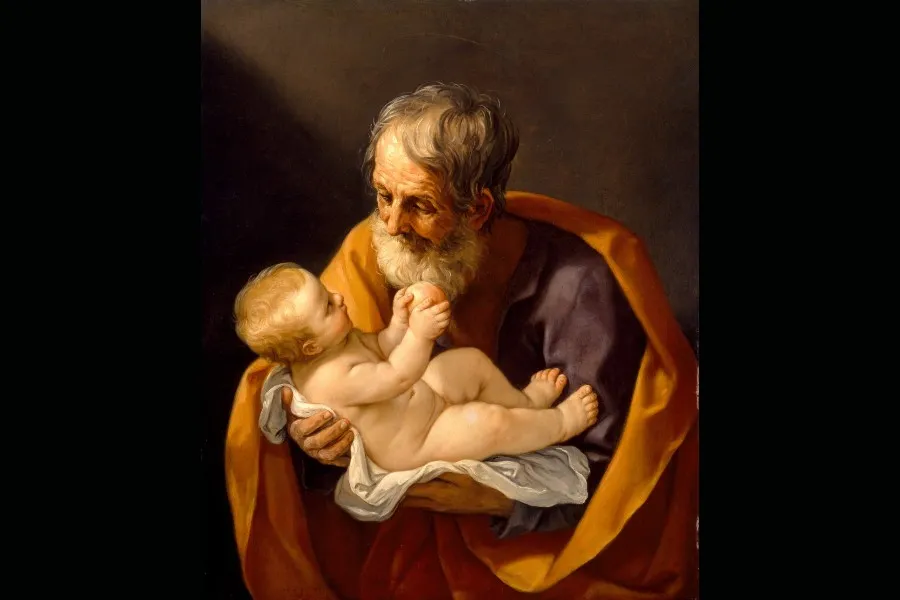Pope Francis Invites Priests to Learn from St. Joseph’s Fatherhood
St. Joseph can be a good teacher in the spiritual life and discernment, Pope Francis said, so that we can learn to welcome what happens in our lives without always trying to “grasp” and “possess” it.

VATICAN CITY — Pope Francis has invited Catholic priests to rediscover St. Joseph and learn from his fatherhood during the year dedicated to him.
Speaking to priests and seminarians on Thursday, the pope said: “I invite you to rediscover in a particular way in prayer the figure and mission of St. Joseph, docile to the will of God, humble author of great deeds, obedient and creative servant.”
“It will do you good to place yourselves and your vocations under his mantle and learn from him the art of fatherhood, which you will soon be called to exercise in the communities and in the ministerial areas and services that will be entrusted to you,” he said in a meeting with a delegation from Rome’s Belgian Pontifical College March 18.
Pope Francis met with a group of faculty and students of the college to mark its 175th anniversary.
At the beginning of the audience, the pope remarked that St. John Paul II had resided at the college. He also noted that the college’s patron saint is St. Joseph. So, he said, it seemed apt to reflect on the saint on the eve of his solemnity in a year dedicated to him.
“We can look to him, as ministers of Christ, to draw some ideas relating to the identity of the pastor and the way of exercising paternity towards those entrusted to us,” he said.
Pope Francis emphasized the welcoming fatherhood of St. Joseph, who set aside his own projects to love and welcome Mary and Jesus, “a bride and a son very different from the vision of family life that he could have desired, but for this reason even more guarded and loved by him.”
St. Joseph can be a good teacher in the spiritual life and discernment, he said, so that we can learn to welcome what happens in our lives without always trying to “grasp” and “possess” it.
He gave the example of when a priest is assigned to a new parish.
“That community pre-exists him, has its own history, made up of joys and wounds, of riches and small miseries, which cannot be ignored in the name of personal pastoral ideas and plans that we cannot wait to apply,” Francis cautioned.
“This is a risk we can fall into. The new parish priest must first love the community, freely, only because he was sent to it,” he advised. “And slowly, by loving her, he will know her in depth and will be able to help set her on new paths.”
Being a guardian is also an essential aspect of St. Joseph’s vocation, Pope Francis said, something the foster father of Jesus does “with the interior freedom of the good and faithful servant who desires only the good of the people entrusted to him.”
Guarding, for St. Joseph and every priest inspired by him, means having a tender love for those entrusted to them and thinking of their good and their happiness first, he said.
“It is the attitude of the shepherd, who never abandons his flock, but places himself with respect to it in a different position based on the concrete needs of the moment: in front to open the way, in the middle to encourage, back to gather the last ones,” he said.
“A priest is called to this in his relationship with the community entrusted to him.”
St. Joseph, the pope continued, safeguarded the fragility of the Child Jesus and his mother, looking “beyond his duties as a father of a family and, preferring to believe in God more than his own doubts, he offered himself to him as an instrument for the realization of a greater plan, in a service rendered in hiding, generous and tireless, until the silent end of his life.”
Priests too must know how to dream for their community, he said, and to be ready “to start from the concrete history of people to promote conversion and renewal in a missionary sense, and to make grow a community on the journey, made up of disciples guided by the Spirit and ‘compelled’ by the love of God.”
- Keywords:
- st joseph
- pope francis














